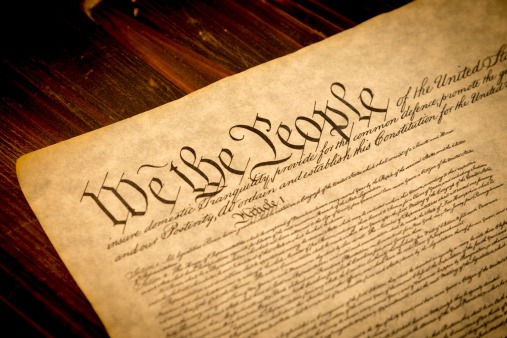
In 1987 we celebrated the 200th Anniversary of our U.S. Constitution. The 200th was remembered for parades, concerts, speeches, and souvenirs. A Washington State group called “Today’s Constitution & You,” with headquarters in the Seattle downtown YMCA, coordinated the soiree.
The oldest document of its kind, our Constitution’s simple language and flexible structure, have largely accommodated the growing pains of a new republic. Along the way, some citizens have been critical of the document, largely because it was written and debated by a white, male, mostly-landed gentry.

In his time, a famous critic of the Constitution was a Seattleite. His name was J. (for James) Allen Smith and his 1907 book, The Spirit of American Government, caused a national debate. The ruckus also contributed to a move to have Smith removed from the University of Washington faculty where he was a member of the political science faculty, 1897-1924, and dean of the graduate school.
Smith, born in Missouri, arrived in the Pacific Northwest from Marietta College in Ohio. Populists controlled the U.W. regents in 1897 and hired a number of progressive teachers, including Smith. Concentrating on municipal reform, both as a scholar and activist, Smith found himself embroiled in controversy. Upon publication of The Spirit in 1907, the heat turned up.
Smith, like Charles and Mary Beard, contended that the U.S. was being governed as a democracy under an undemocratic constitution. He pointed out that members of the 1780s Constitutional Convention had “no faith in the wisdom or political capacity of the people.” His view, as a political reformer, was that the Constitution inhibited reform. He also took a swipe at the capitalist class and the growth of centralized political and governmental power.
Although The Spirit was favorably received on the Chautauqua circuit and by notables such as William Allen White, Theodore Roosevelt, and Lincoln Steffens, academics gave it poor reviews. Locally, the debate became so acrimonious (shades of today’s attack on “woke” academies) that several state legislators in 1915 introduced an amendment to a University Appropriations Bill abolishing Smith’s department.
Vernon L. Parrington, a future Pulitzer winner, was a Smith defender and dedicated his influential trio of books, Main Currents in American Thought, to his beleaguered colleague. U.S. entry into the First World War further disillusioned Smith. That pessimism was reflected his next book, The Growth and Decadence of Constitutional Government, published in 1930, six years after his death.
J. Allen Smith, after the campus brouhaha, is remembered not only as a first-rate political scientist, but has a gifted teacher and passionate U.S. citizen.
Discover more from Post Alley
Subscribe to get the latest posts sent to your email.
